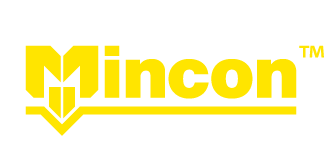Based in Sheffield, England, Mincon Carbide is situated in an area of the UK that is renowned for its industrial heritage. We have been based in our office and factory complex for over 70 years during in which time we have continued to expand and re-invest in our production facilities and develop a highly experienced and motivated workforce.
Along with retaining traditional engineering skills we also encourage and promote the latest technology and best engineering practices throughout our workforce.
These skills have allowed us to forge close relationships with both our suppliers and clients and enable us to produce products of the highest quality that minimise cost and allow our customers to excel in global markets.
Company History
Mincon Carbide Ltd originated in the name of Marshalls Hard Metals Ltd that was formed in January 1985 by Marshalls Halifax Plc merging Higher Speed Metals Ltd with FBT Hard Metals Ltd in August 1984.
Marshalls Halifax PLC’s engineering division already included Higher Speed Metals Ltd, which was a hardmetal manufacturer based in Sheffield. In 1985 the employees, plant and equipment of Higher Speed Metals were subsequently transferred to Windsor Street, the site of FBT Hard Metals.











